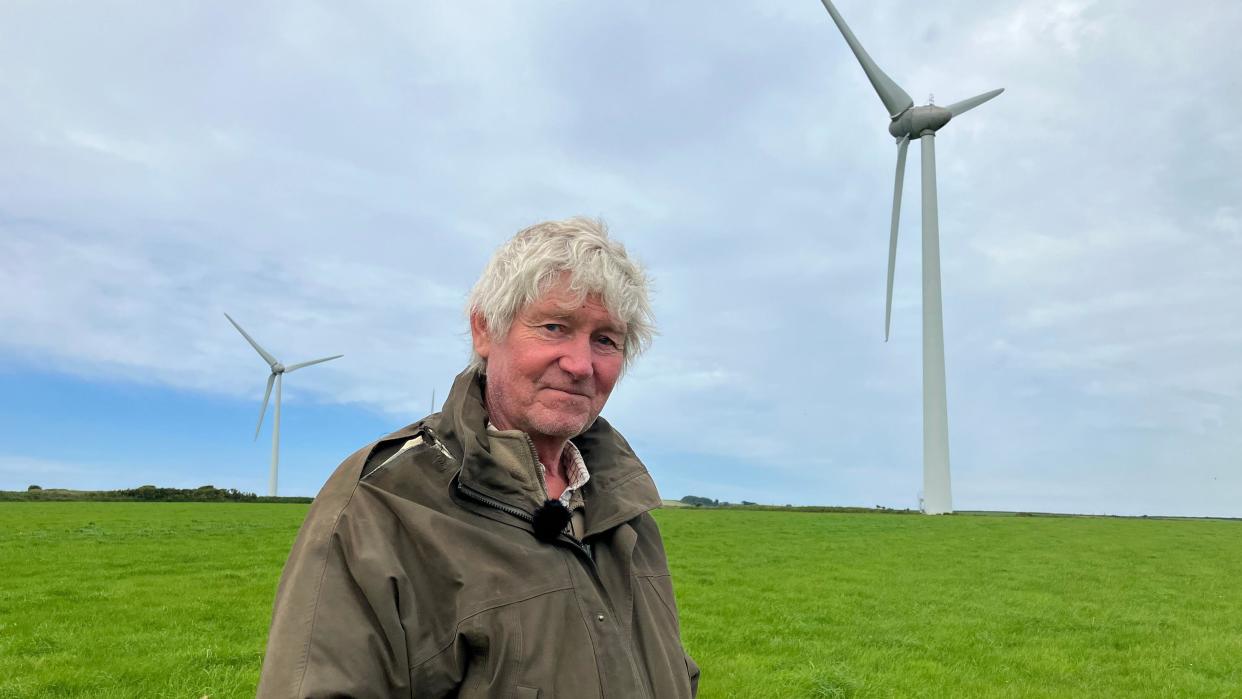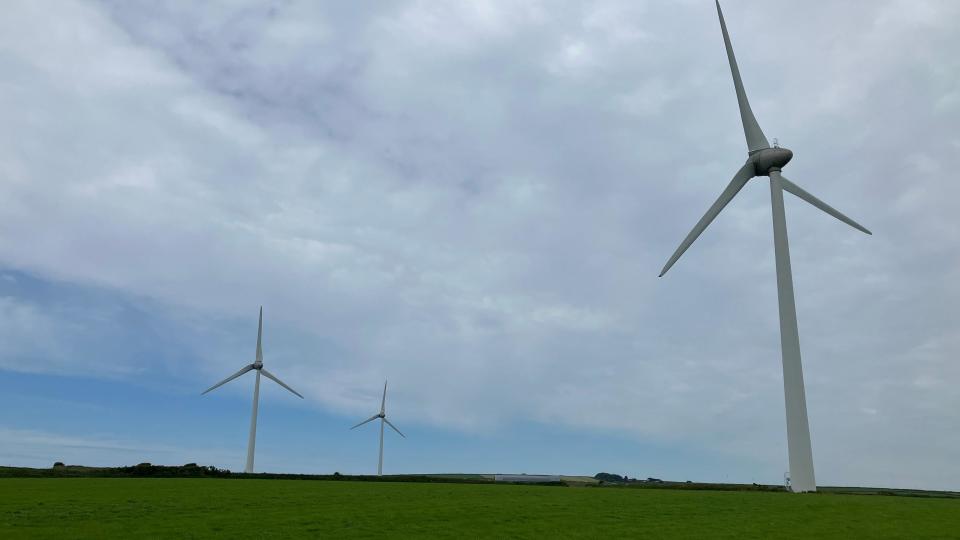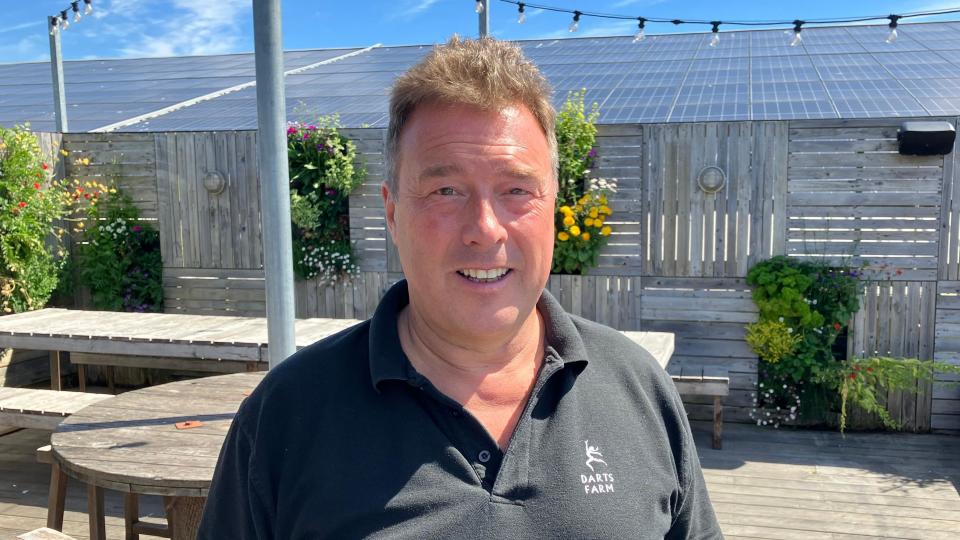Views shared on renewable energy ahead of election

More than 30 years ago the UK’s first commercial wind farm opened in Cornwall. Three decades on and renewable energy is playing a much bigger role in people's lives and the general election.
“It makes me very proud," said Martin Edwards of the wind farm he helped to create on his family's farm at Delabole in the early 1990s.
The idea to harness the power of the wind came after the roof was blown off their house in a storm.
"It was a fantastic thing to do," he said.
"It really did demonstrate to the big players out there that wind power was commercially viable."

The 63-year-old wants to see more renewable energy projects to help limit the impact of climate change.
“I think we need to see more onshore wind, more energy storage and more solar [power]. Much more of it smaller scale, on barn and factory roofs.
"All new builds should have solar on them automatically, there’s no reason why not. That’s the way it will go to get to net zero."
But the farmer said he was concerned "too much has been left until way too late".
"We need to tackle things much faster. We now need to do more than we would have done if we'd done something 10 or 15 years ago."

The owner of Darts Farm in Topsham uses an app on his phone to track how much energy is being generated by the solar panels that cover the roof of his business.
“It’s amazing isn’t it? It’s free energy,” said Michael Dart who started installing solar panels on his property about 12 years ago.
“We’ve had a capital investment on all the panels but we’ve now got free energy when the sun shines," he said.
"Anything government can do to help stimulate the change from fossil fuels to green energy has to be good but it’s got to be done in an affordable way. We need a long strategy, not a short term panic."

Mark Marriott, from near Holsworthy in Devon, objected to plans for a solar farm with about 70,000 panels on land adjacent to his land.
“We support solar. We’ve got it on our house, but we don’t support it ruining the countryside," he said.
“I’d like to see building and planning regulations make all new houses have solar, air source heat pumps and batteries.
"I’d like to see government buildings have solar on the roofs, on car park roofs and on brown field sites."
Dr Phil Bratby, from the Devon branch of the Campaign to Protect Rural England (CPRE), said they were very concerned about more onshore wind and solar farms.
“We believe you can’t power the country on renewable energy," he said.
"We don’t want to see more farm land lost to these developments."
Dr Bratby said developing small scale modular nuclear reactors was the answer.
"We’ve had nuclear power in this country for years and it’s been successful, it’s affordable and it’s reliable," he said.
"We are in a climate crisis," Becky Fowell, from Regen, a not-for-profit organisation supporting the transition to a net-zero energy future.
The Energy Market Analyst said: "The government has set ambitious net zero by 2050 targets and one of the key ways to get us there and move us towards that target is to introduce more renewable electricity into our system."
She added: "The sun doesn't always shine and the wind doesn't always blow but more often than not they compliment each other.
"So, making sure a significant amount of our renewable electricity is coming from a variety of sources, increases our security of supply and we have the ability to provide clean, renewable power to people's homes when it's needed."
What do the political parties say?
The Conservatives want to treble offshore wind capacity, to deliver low-cost, home-grown energy and support the development of vibrant industrial clusters in places like the North East of England, Scotland and Wales.
Labour has said it would work with the private sector to quadruple offshore wind, double onshore wind and triple solar power by 2030 and create a Clean Power Alliance of countries to deliver lower energy bills and accelerate energy.
The Liberal Democrats want to remove what they describe as the Conservatives’ unnecessary restrictions on new solar and wind power, and support investment and innovation in tidal and wave power in particular.
The Green Party said it wants wind to provide about 70% of the UK’s electricity by 2030 and is aiming for 80GW of offshore wind, 53 GW of onshore wind and 100 GW of solar by 2035.
Reform said it would Unlock Britain’s vast energy treasure of oil and gas to slash energy bills and fast-track nuclear energy.

Follow BBC Devon on X (formerly Twitter), Facebook and Instagram. Send your story ideas to spotlight@bbc.co.uk.


